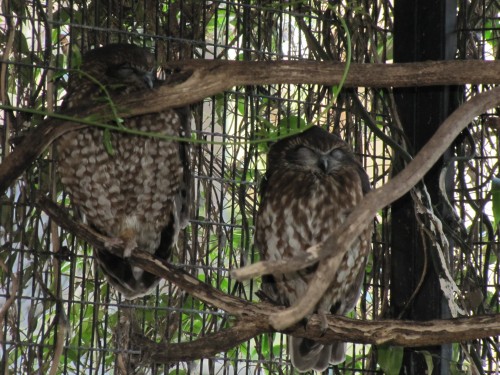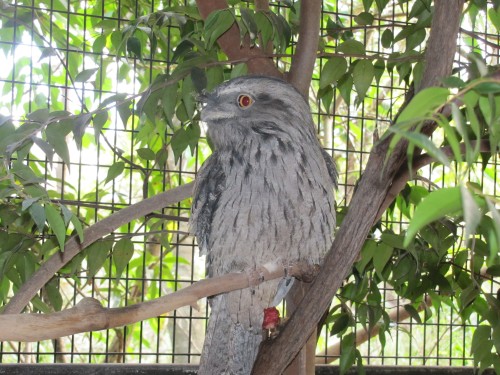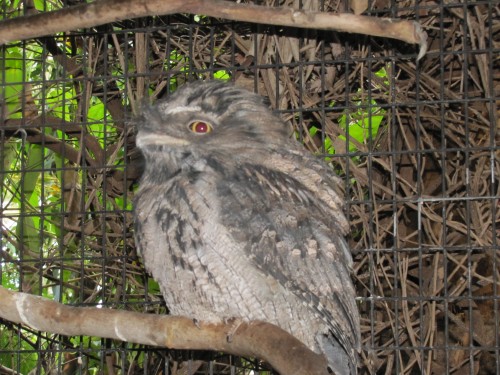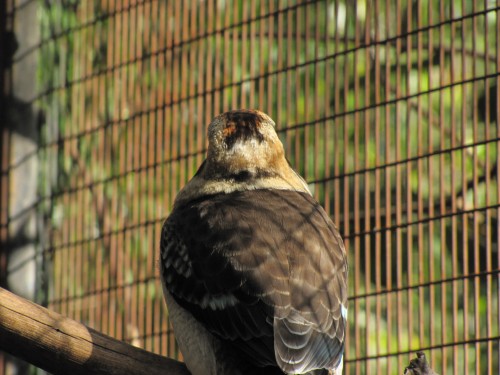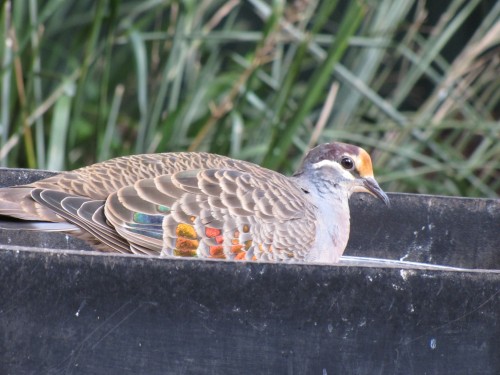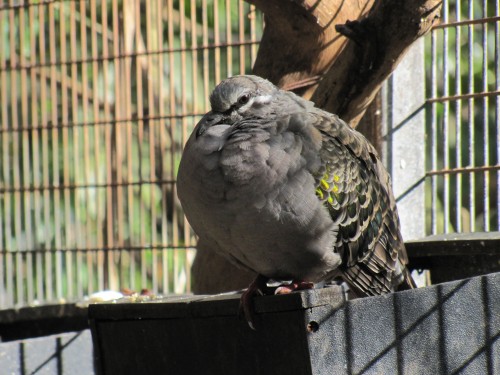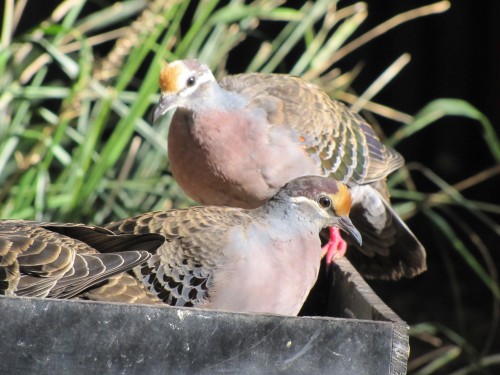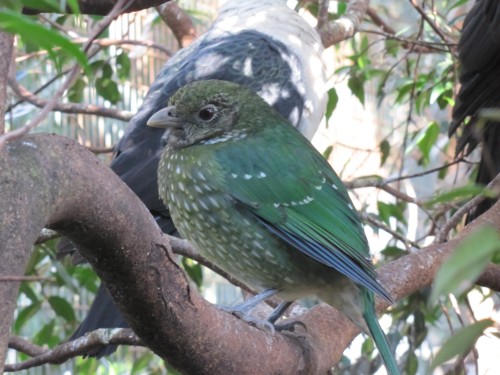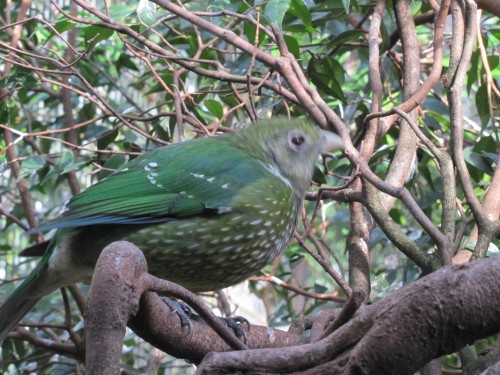Southern Boobooks at the Australian Reptile Park
Over the last week or so I have been sharing photos of birds taken during a recent family visit to the Australian Reptile Park near Gosford north of Sydney.
This series continues today with the photo above of two Southern Boobook owls roosting in their aviary. Boobooks are widely spread in Australia and are a well-known species because of their “boo-book” call ringing through the bushland and even in suburban gardens.
We recently had one calling near our home in Murray Bridge, South Australia. You can read about that here.
Tawny Frogmouths at the Australian Reptile Park
On our recent visit to the Australian Wildlife Park near Gosford north of Sydney, I was pleased that a part of their collection of animals included birds. In fact, some of the birds were in walk-through aviaries. Such cages are good opportunities to get good photos of species it would be hard to obtain with animals in the wild.
One of the aviaries featured owls and frogmouths. I’ll show the owls in another post in a few days’ time.
Tawny Frogmouths, as shown in today’s post (above and below) are one of my favourite birds. Ever since a family Easter camp in the 1986 at Hattah-Kulkyne National Park in north-west Victoria we have loved these birds. On that occasion one decided to roost on a branch above our tent and call for quite a while during the night. Once we worked out what it was, the constant oom-oom-oom call soothingly put us to sleep.
We have occasionally heard and seen this species in our garden at home in Murray Bridge, South Australia. Because of its soft call we do not hear it if the television is going in the evening. Perhaps that is a good reason for occasionally switching it off.
A rude Laughing Kookaburra
Most people love to hear the call of the Laughing Kookaburra. It is one of the quintessential bird calls of the Australian bush.
Some people might be of the opinion that Laughing Kookaburras can be quite rude when they laugh at inappropriate moments. The bird in the photo above was being rude in a quite different way; he turned his back on me.
The bird shown in the photo today was one of the residents of one of the walk through aviaries at the Australian Reptile Park near Gosford north of Sydney. We went there on a family outing recently. It is my guess that there were also many more kookaburras in the surrounding bushland.
I’d better own up. The bird in the photo did turn around shortly after this photo was taken. Unfortunately I didn’t get the focus right and it turned out quite blurred, so I guess you can say that I was the rude one – for calling it rude in the first place!
Bronzewing Pigeons at the Australian Reptile Park
The Common Bronzewing Pigeon is a widespread species in the mallee areas of South Australia where I live, as well as being relatively common throughout its range where suitable habitat exists. It is scarce in the drier parts of the continent.
The photos shown in today’s post were taken on a recent family visit to the Australian Reptile Park near Gosford north of Sydney. These birds were not wild birds but individuals kept in one of the aviaries there. I feature them here because of their beautiful colours.
The bird immediately below this text is not as colourful. It could be a juvenile, or the lack of colour could be the angle of the sun on the feathers. It looks more fluffed up than normal; it was a very cold day.
The prominent yellow-buff colouring on the males in the top and bottom photos is particularly striking, something I haven’t observed in the natural environment. In their natural habitat they tend not to sit nicely like these in one of the walk through aviaries in the reptile park. I usually just see a blurred shape of a bird fast disappearing into the distance.
Green Catbird at the Australian Reptile Park
The Green Catbird is a species I have only seen on a handful of occasions in the wild. The bird shown in the photo above was taken in one of the walk-through aviaries at the Australian Reptile Park near Gosford, north of Sydney. We recently visited the park on a family outing with our grandchildren.
The Green Catbird gets its name from its cat-like call. The green part of the name is obvious! The species is one of two catbirds in Australia, the other being the Spotted Catbird which lives in far north coastal Queensland, a species I have yet to see. Green Catbirds on the other hand are found along coastal areas of southern Queensland and eastern New South Wales.
Catbirds inhabit rainforests where they feed on fruit. They are known to raids fruit trees in orchards and gardens.
